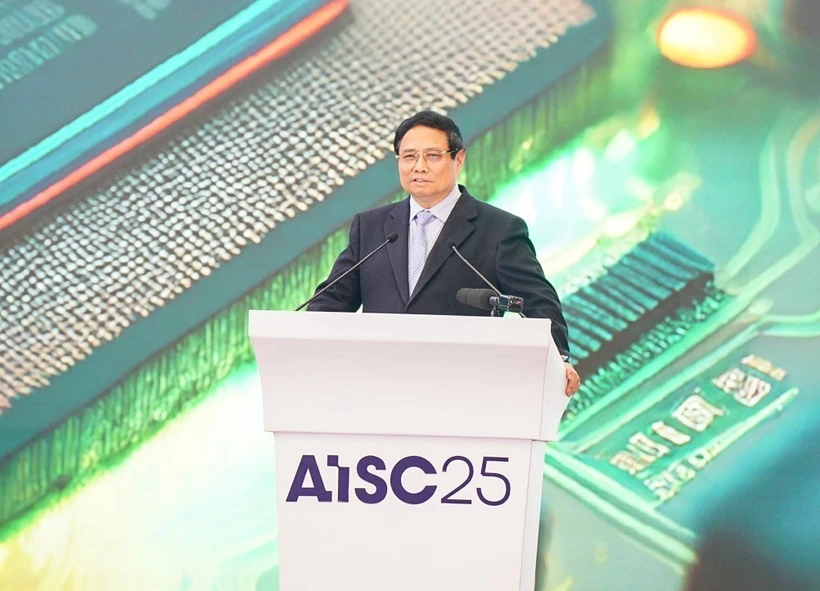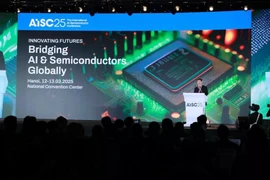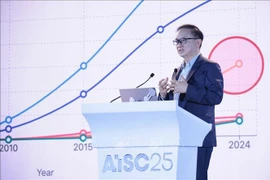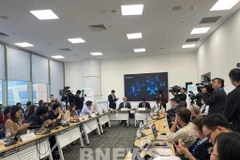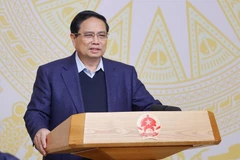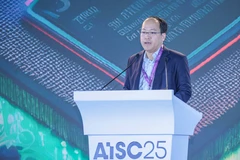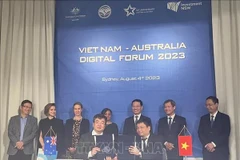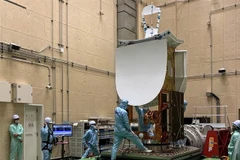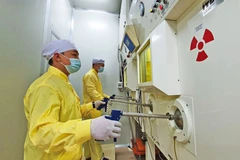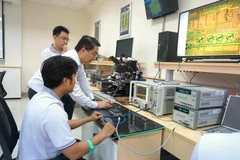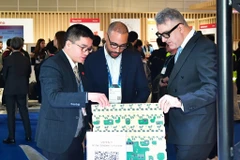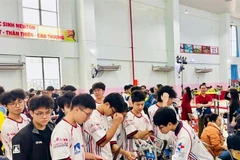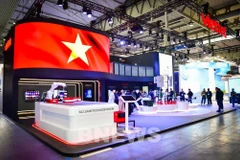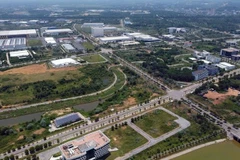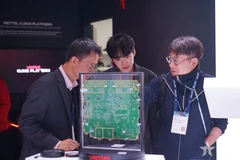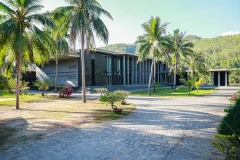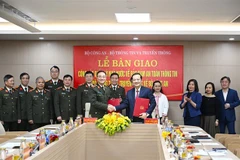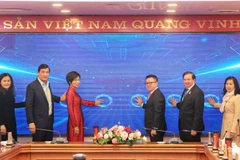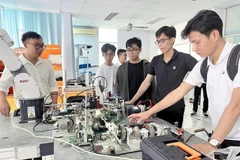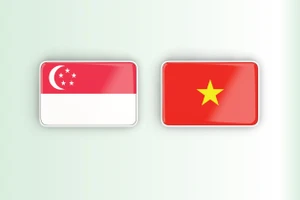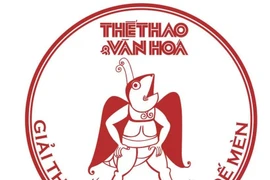Hanoi (VNA) – Prime Minister Pham Minh Chinh has called on international partners to help Vietnam advance its technological capabilities and transform its development trajectory, particularly in emerging fields like artificial intelligence (AI) and semiconductor.
Addressing the policy forum “Taking the Lead: Vietnam’s Proactive Strategy for Semiconductor & AI Advancement in the New Era” held on March 14 within the framework of the AI-Semiconductor Conference (AISC 2025), PM Chinh laid stress on Vietnam’s commitment to rapid and sustainable growth driven by science, technology, innovation, and digital transformation.
As Vietnam set a target of becoming a high-income developed country by 2045, despite having a modest economic scale and undergoing transformation with high openness and limited resilience to external shocks, the country must create resources to turn its vision to fruition. “Resources originate from thinking, motivation stems from innovation, and strengths come from the people and businesses”, he stated.
The PM went on to say that Vietnam has set a goal of achieving at least 8% growth in 2025, creating momentum for double-digit growth in subsequent years. Though challenging, PM Chinh expressed his confidence that with international cooperation and support, Vietnam can achieve this target.
Seeing institutional frameworks as both "bottleneck of bottlenecks" and "breakthrough of breakthroughs,” Vietnam is mapping out policies to develop the AI and semiconductor industries. The Government has pledged to slash at least 30% of cumbersome administrative procedures, step up decentralisation, enhance implementation capacity, and promote self-resilience and creativity among stakeholders, he said.
The PM also outlined plans to develop strategic infrastructure supporting AI and semiconductor production, including transport infrastructure to reduce logistics costs, information technology, telecommunications, digital infrastructure, and energy systems to ensure reliable power supply even in remote areas. Human resources development remains a key priority, with plans to train 100,000 engineers in the fields in the coming years.
Vietnam is seeking international partners’ assistance in institutional perfection, streamlining of administrative procedures, shifting from management thinking to development promotion, increasing decentralisation, and reduction of compliance costs for people and businesses.

PM Chinh expressed his hope for financial support through concessional loans to establish investment funds, build financial centres, upgrade the stock market, transfer technology through R&D centres, and create favourable conditions for Vietnamese firms to engage in global supply and production chains.
He requested corporations to create conditions for Vietnamese nationals to participate in leadership and management roles, prioritise accepting Vietnamese employees in leading global companies, and help Vietnam train high-quality human resources in the emerging industries like semiconductors, AI, quantum optics, cloud computing, and biomedical sciences.
The Vietnamese Government pledges to support foreign enterprises’ faster and more effective development in Vietnam, ensuring their legitimate rights through rational institutions and policies in the spirit of “harmonising benefits and sharing risks”, he underscored.
On the occasion, PM Chinh, Deputy PM Nguyen Chi Dung and delegates witnessed the announcement of initiatives on semiconductor human resources development, semiconductor startup incubation and development, and support for Vietnamese enterprises to participate in the AI Alliance.
AISC 2025, organised from March 12-16 in Hanoi and Da Nang by the National Innovation Centre (NIC) in collaboration with Aitomatic (USA), attracted over 1,000 domestic leaders and experts alongside representatives from investment funds, banks, and international organisations. The event, themed "Creating the Future: Connecting Global AI and Semiconductor Technology," featured key workshops on the semiconductor and AI technology revolution, exhibitions, investment and business networking, and a policy forum on Vietnam’s AI and semiconductor development in the new era./.
